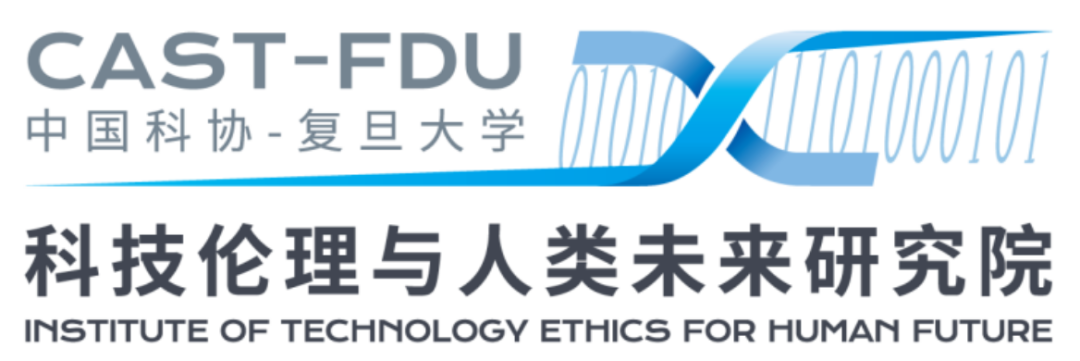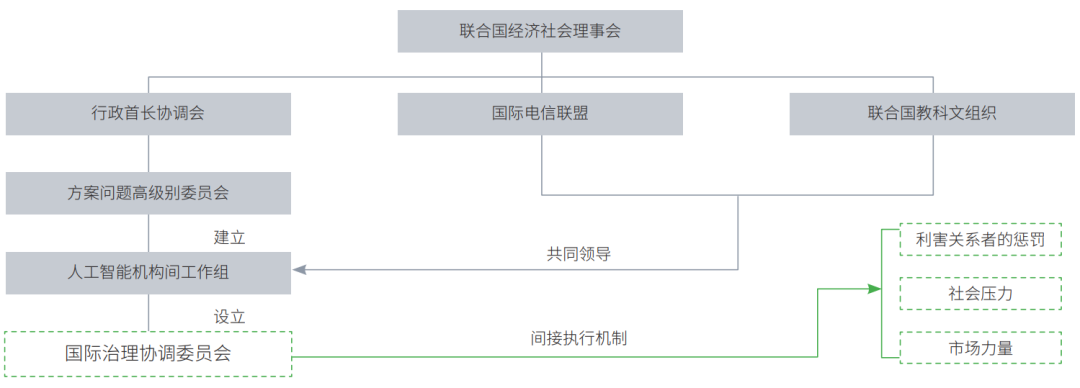What Should We Do About Artificial Intelligence Ethical Governance?
What Should We Do About Artificial Intelligence Ethical Governance?
Artificial intelligence (AI) is the core technology in the fourth industrial revolution and has received great attention from the world.
Artificial intelligence (AI) is the core technology in the fourth industrial revolution and has received great attention from the world. Our country has also formulated a series of development plans and strategies around artificial intelligence technology, which has vigorously promoted the development of the field of artificial intelligence in our country. However, while artificial intelligence technology brings significant development opportunities to economic development and social progress, it also brings profound challenges to ethical norms and social rule of law.
Ethics is the principles and order norms that deal with the relationship between people and the relationship between people and society. In human history, major scientific and technological developments often bring about significant changes in productivity, production relations and superstructure, becoming an important criterion for dividing eras, and also bring about profound reflections on social ethics.
After human society entered the information age in the mid-to-late 20th century, information technology ethics gradually attracted widespread attention and research, including personal information leakage, information gaps, information cocoons, and insufficient regulation of new power structures.
At the current stage, artificial intelligence has not only inherited the ethical issues of previous information technology, but also has new characteristics due to the opacity, difficulty in explanation, adaptability, and wide application of some artificial intelligence algorithms such as deep learning. It may bring about a series of ethical risks in many aspects such as basic human rights, social order, and national security.
1. Defects in artificial intelligence systems and value setting issues may pose threats to citizens’ rights to life and health;
2. Deviations in target demonstration, algorithm discrimination, and training data of artificial intelligence algorithms may bring about or expand discrimination in society and infringe on citizens’ rights to equality;
3. The abuse of artificial intelligence may threaten citizens’ rights to privacy and personal information;
4. Complex artificial intelligence algorithms such as deep learning will lead to algorithm black box problems, making decisions opaque or difficult to explain, thus affecting citizens’ right to know, due process and citizens’ right to supervision;
5. The abuse and misuse of artificial intelligence technologies such as accurate information push, automated fake news writing, intelligent targeted dissemination, and deep forgery may lead to problems such as information cocoons and the proliferation of false information, and may affect people's access to important news and democratic participation in public issues; the precise push of false news may also increase people's understanding and opinions of facts, which may incite public opinion, manipulate commercial markets, and influence politics and national policies;
6. Artificial intelligence algorithms may use algorithmic discrimination, or collude with algorithms to form horizontal monopoly agreements or hub-and-spoke agreements, under circumstances that are less likely to be detected and proven, to undermine the market competition environment;
7. The application of algorithmic decision-making in various fields of society may cause changes in the power structure. Algorithms, by virtue of their technical advantages in processing massive data and their embedded advantages in ubiquitous information systems, have a significant impact on people's rights and freedoms;
8. The abuse of artificial intelligence in work scenarios may affect the rights and interests of workers, and the replacement of workers by artificial intelligence may trigger a crisis of large-scale structural unemployment and bring risks to labor rights or employment opportunities;
9. As artificial intelligence is increasingly widely used in all aspects of social production and life, security risks such as loopholes and design flaws in artificial intelligence systems may lead to social problems such as data leakage such as personal information, stagnation of industrial production lines, and traffic paralysis, threatening financial security, social security, and national security;
10. The misuse of artificial intelligence weapons may exacerbate inequality around the world and threaten human life and world peace;
…………
Due to the diversity of causes of artificial intelligence ethical risks and the rapid development of artificial intelligence technology and industrial applications, the governance of artificial intelligence ethical risks is complex, and a complete theoretical framework and governance system have not yet been formed.
Regarding the development of artificial intelligence, we can neither be blindly optimistic nor stop eating because of choking. We must have a deep understanding of its ability to increase social well-being. Therefore, as human society enters the era of intelligence, it is necessary to guide artificial intelligence from a macro perspective as early as possible to move forward along the scientific path, conduct ethical reflection on it, identify the ethical risks and their causes, and gradually build a scientific and effective governance system so that it can better exert its positive value.
In terms of the overall path selection of artificial intelligence governance, there are two main theories: "antagonism theory" and "system theory": "antagonism theory" mainly focuses on the conflict between artificial intelligence technology and human rights and well-being, and then establishes corresponding review and regulatory systems; "system theory" emphasizes the coordinated and interactive relationship between artificial intelligence technology and humans, other artificial agents, laws, non-intelligent infrastructure and social norms.
Artificial intelligence ethical governance is an important part of social governance. Under the guidance of the governance theory of "co-construction, co-governance and sharing", with "inclusiveness and prudence" as the regulatory principle and "system theory" as the governance approach, our country should start from five aspects: education reform, ethical norms, technical support, legal regulations, and international cooperation, and gradually build a multi-subject participation, multi-dimensional, and comprehensive governance system.
education reform
Education is an important way for the intergenerational transmission of human knowledge and the cultivation of abilities. Paying attention to the development and reform of education plays an indispensable role in the development and application of artificial intelligence technology. In order to better support the development and governance of artificial intelligence, it should be improved from four aspects:
1. Popularize knowledge on cutting-edge technologies such as artificial intelligence, improve public awareness, and enable the public to treat artificial intelligence rationally;
2. Strengthen artificial intelligence ethics education and professional ethics training among scientific and technological workers;
3. Provide workers with a continuous lifelong education system to deal with unemployment problems that may be caused by artificial intelligence;
4. Study the reform of youth education, break the limitations of knowledge-based education inherited from the industrialization era, and respond to the demand for talents in the artificial intelligence era.
ethics
Formulate ethics and codes of conduct for artificial intelligence product R&D designers and future users, and provide constraints and guidance from source to downstream. There are currently 5 key tasks that can be carried out:
1. Focus on the key areas of artificial intelligence, study detailed ethical principles, and form operable norms and suggestions;
2. Provide appropriate guidance at the publicity and education level to further promote the formation of artificial intelligence ethical consensus;
3. Promote scientific research institutions and enterprises to understand and practice the ethical risks of artificial intelligence;
4. Give full play to the role of the national-level ethics committee and promote the promotion of advanced ethical risk assessment and control experience by formulating national-level artificial intelligence ethics guidelines and promotion plans, regularly assessing ethical risks for new business formats and new applications, and regularly selecting best practices in the artificial intelligence industry;
5. Promote the establishment of ethics committees in artificial intelligence research institutes and enterprises to lead the assessment, monitoring and real-time response to artificial intelligence ethical risks, so that artificial intelligence ethical considerations run through the entire process of artificial intelligence design, research and development and application.
Technical support
1. Reducing ethical risks by improving technology is an important dimension of artificial intelligence ethical governance. Currently, driven by scientific research, market, law, etc., many scientific research institutions and enterprises have carried out activities such as federated learning and privacy computing to better protect personal privacy technology research and development; at the same time, research on artificial intelligence algorithms that enhance security, explainability, and fairness, as well as technical research on data set anomaly detection, training sample evaluation, etc., have also proposed many model structures for ethical agents in different fields;
2. Improve the patent system, clarify the patentability of algorithm-related inventions, and further encourage technological innovation to support the design of artificial intelligence systems that meet ethical requirements;
3. The formulation of recommended standards in some key areas cannot be ignored. In the formulation of artificial intelligence standards, we should strengthen the implementation and support of artificial intelligence ethical principles, focus on the formulation of standards for privacy protection, security, usability, explainability, traceability, accountability, evaluation and regulatory support technology, encourage enterprises to propose and publish their own corporate standards, and actively participate in the establishment of relevant international standards, promote the incorporation of my country's relevant patented technologies into international standards, help my country enhance its voice in the formulation of international artificial intelligence ethical principles and related standards, and lay a better competitive advantage for Chinese enterprises in international competition.
Legal regulations
At the legal regulatory level, it is necessary to gradually develop digital human rights, clarify the distribution of responsibilities, establish a regulatory system, and achieve an organic combination of the rule of law and technical governance. At the current stage, we should actively promote the effective implementation of the "Personal Information Protection Law" and "Data Security Law" and carry out legislative work in the field of autonomous driving; we should also strengthen research on algorithm supervision systems in key areas, distinguish different scenarios, and explore the necessity and prerequisites for the application of artificial intelligence ethical risk assessment, algorithm audits, data set defect detection, algorithm certification and other measures, so as to prepare theoretical and institutional suggestions for the next step of legislation.
international cooperation
Currently, human society is entering the era of intelligence, and the rules and order in the field of artificial intelligence worldwide are in the formative stage.
The EU has conducted many studies focusing on artificial intelligence values and hopes to transform Europe's human rights tradition into new advantages in the development of artificial intelligence through legislation and other means.
The United States also attaches great importance to artificial intelligence standards. Trump issued an executive order on the "U.S. Artificial Intelligence Plan" in February 2019, requiring government agencies such as the White House Office of Science and Technology Policy (OSTP) and the National Institute of Standards and Technology (NIST) to formulate standards to guide the development of reliable, robust, trustworthy, safe, simple and collaborative artificial intelligence systems, and called for leading the formulation of international artificial intelligence standards.
Our country is at the forefront of the world in the field of artificial intelligence technology and needs:
1. Be more proactive in responding to the challenges posed by artificial intelligence ethical issues and assume corresponding ethical responsibilities in the development of artificial intelligence;
2. Actively carry out international exchanges, participate in the formulation of relevant international management policies and standards, and have a say in scientific and technological development;
3. Occupy the commanding heights of development among the most representative and breakthrough scientific and technological forces, and make positive contributions to the realization of global governance of artificial intelligence.
Zhang Zhaoxiang is a researcher at the Institute of Automation, Chinese Academy of Sciences. His research interests include visual perception and understanding inspired by biological cognition, human-like learning, and brain-like intelligence.
Tan Tieniu is an academician of the Chinese Academy of Sciences, a foreign academician of the Royal Academy of Engineering, an academician of the Academy of Sciences for Developing Countries and a corresponding academician of the Brazilian Academy of Sciences. Director and researcher of the Intelligent Perception and Computing Research Center of the Institute of Automation, Chinese Academy of Sciences. His research directions include biometric identification, image and video understanding, and information content security.





